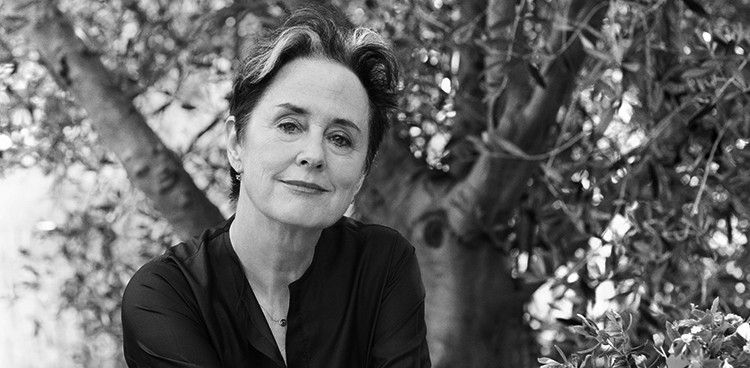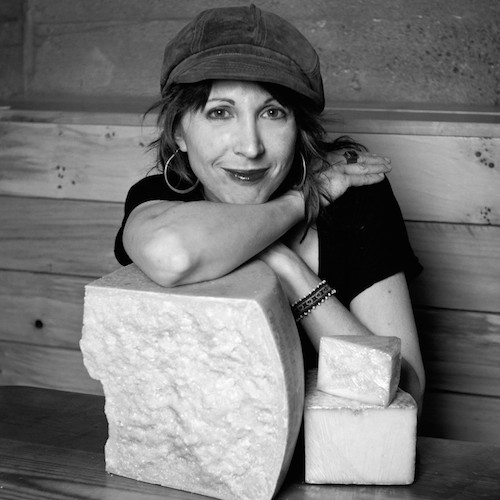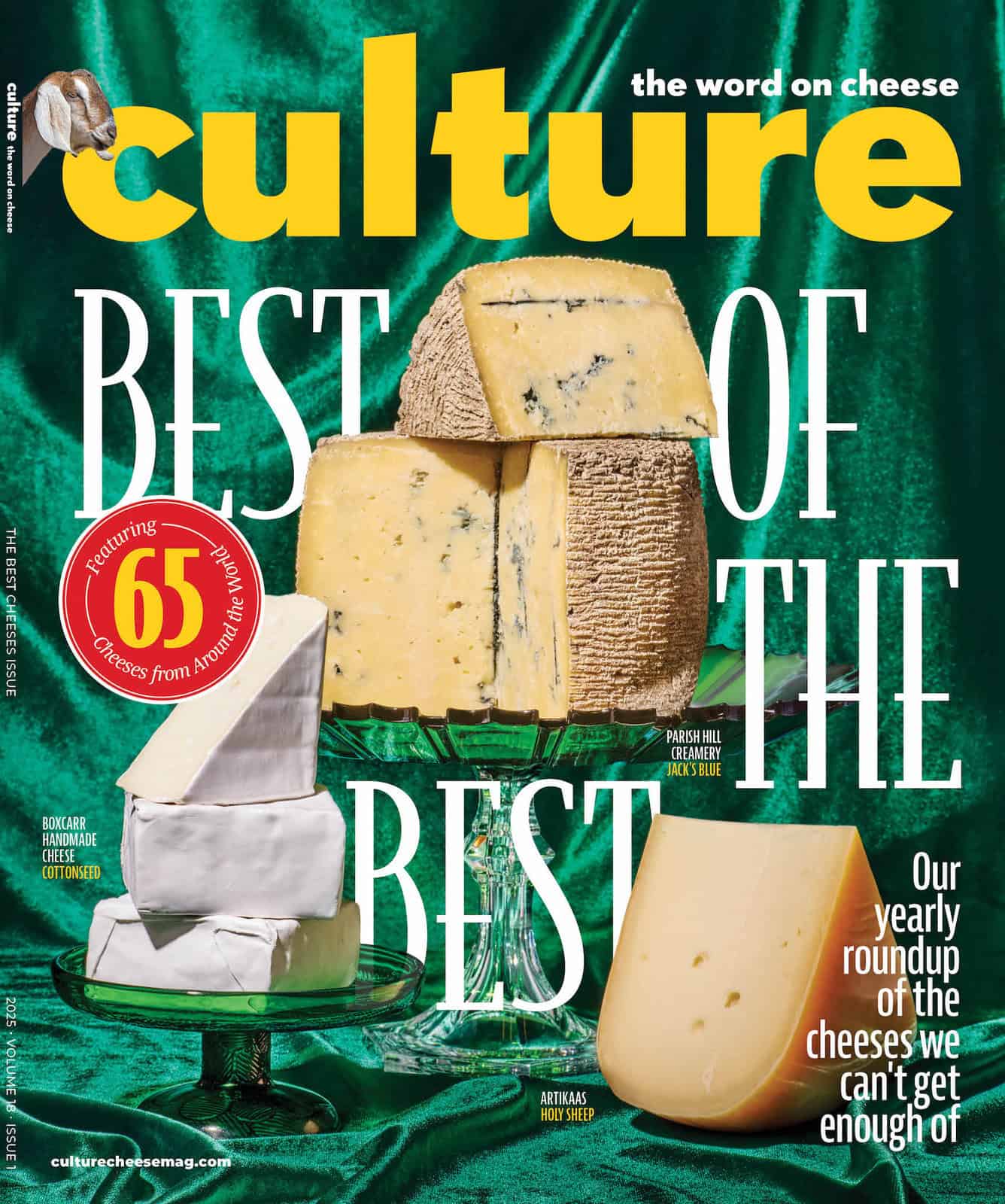
Since opening Chez Panisse in Berkeley, Calif., 45 years ago, Alice Waters has become a world-renowned chef, author, speaker, and food activist. She’s the founder of The Edible Schoolyard Project, which incorporates gardening and cooking into the academic curriculum, and is a leading force behind the School Lunch Initiative, a national push for free lunches made from organic ingredients to be served in public schools. Culture caught up with the septuagenarian caseophile—who is currently working on a memoir about her early “edible education” in France and the Bay Area pre-Panisse—to talk organic labeling, retirement, and California’s role in the artisan cheese movement.
ON URBAN FARMERS’ MARKETS
I love going to the Saturday San Francisco
Ferry Plaza Farmers’ Market to buy the freshest organic food from all of my favorite farmers in our area. It’s the punctuation on my week and a time to connect with my friends. Having local food in our cities teaches people to eat with the seasons.
ON WHAT IT MEANS TO BE ORGANIC
Organic labeling is so important, especially when it comes to meat. I’d love it to [encompass] much more, like fair wages for farm workers and biodynamic growing methods. I’d like to think it’s a term that the fast food industry can’t hijack.
ON SMALL FOOD BUSINESSES
I have always thought that running a small business is a better way of life. There can be room for everyone at that scale and sourcing from these shops becomes a part of connecting to where our food comes from. It feels like nourishment that’s both spiritual and physical.
ON THE EVOLUTION OF AMERICAN CHEESEMAKERS
The local cheese scene has multiplied exponentially over the years; there are so many different styles, and the subtleties of cheesemaking are much better understood across America. The
Cowgirls [Sue Conley and Peggy Smith, both former Chez Panisse cooks] helped start that in California back in 1994—they knew about purity, and their shop became a place where people came from around the world to learn about cheesemaking, from Camembert to blues.
ON HER FAMOUS GOAT CHEESE SALAD
One of the first cheeses that we got at Chez Panisse was
Laura Chenel’s chèvre. It was about finding a locally sourced farm-to- table product and, since I was a Francophile, a French-style cheese! The baked goat cheese salad with garden lettuces is still on the café menu and has never lost its appeal.
ON FAVORITE CURDS
ON BUILDING A HEALTHIER FUTURE
I think we know in our hearts that sharing good food, and knowing where that food comes from, brings us together and strengthens us as a people. The most important thing is to teach our children from a young age the value of sustainable nourishment and commitment to the land, or there won’t be a future. We need to learn about farming when we’re 5, not when we’re in graduate school.
ON GETTING OLDER
I don’t believe in retirement. Or at least, I just can’t imagine retiring. I do think about growing older, of course, and I am committed to the idea of [moving into] a commune at some point, a multigenerational community with meaningful work.
Feature Photo Credit: Amanda Marsalis
Laurel is a contributing editor at culture and a food and travel writer based in Austin, Texas. She also serves as editor at Edible Aspen.













